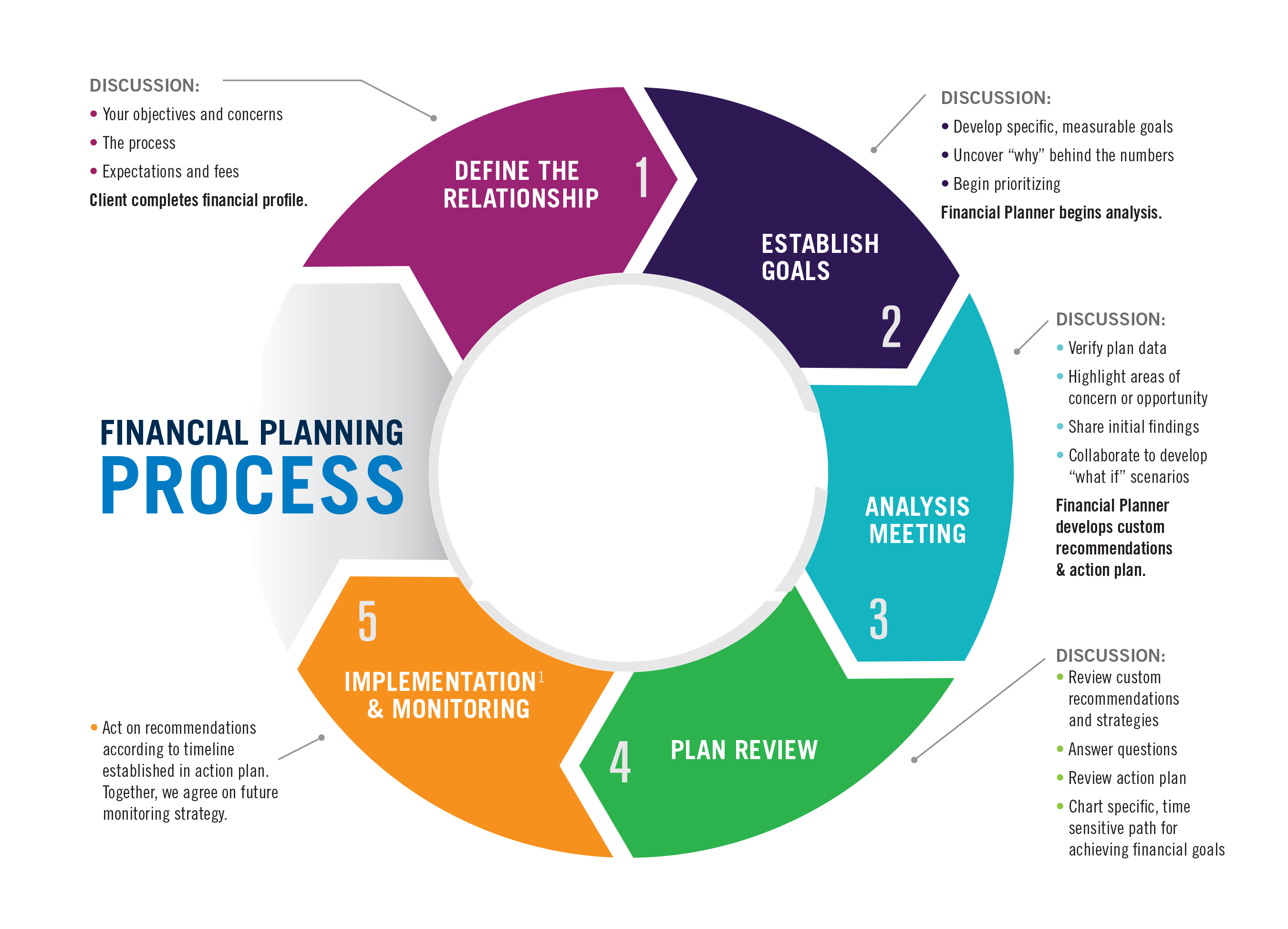A financial plan can provide a comprehensive roadmap to help you work towards your goals after a thorough evaluation of your current financial position. Many personal factors (i.e., birth of a child, new job, inheritance, new home purchase, retirement, marriage/divorce); or economic factors (i.e., stock market volatility, tax law changes, political/economic environment changes) could cause your current financial position to change.

Cornerstones of Financial Planning
CASH MANAGEMENT & LIABILITIES
- Cash Flow
- Cash Reserve
- Cash Management Options
- Debt Management
- Home Purchase/Refinance
- Upcoming Large Expenses
PROTECTION
- Home/Auto/Umbrella
- Employer Benefits
- Health Insurance*
- Disability Income*
- Long Term Care Insurance*
- Life Insurance
- Beneficiary Reviews
*Availability varies by carrier and state
- Risk Tolerance Assessment
- Employer Sponsored Retirement Plans
- Traditional IRA/Roth IRA
- Brokerage Accounts
- Education Savings Accounts
- Guaranteed Income Solutions
TAX & ESTATE PLANNING STRATEGIES
- Partner with CPA/Attorney
- Tax Management Strategies
- Roth Conversions
- Wills/Trusts
- Power of Attorney
- Healthcare Directive
- Legacy Planning
- Business Continuation
What Is a CFP® Professional?
A CFP® certificant is a credentialed financial professional held to strict ethical and performance standards. According to the CFP® Board, CFP® professionals “are trained to help you develop a comprehensive strategy to reach your short- and long-term financial goals … from planning for retirement to saving for college.”
In order to earn this certified credential, every prospective CFP® certificant must have at least 4,000 hours of financial planning experience and meet additional initial certification requirements in four main categories. Only those who meet these rigorous requirements can call themselves CFP® professionals.
